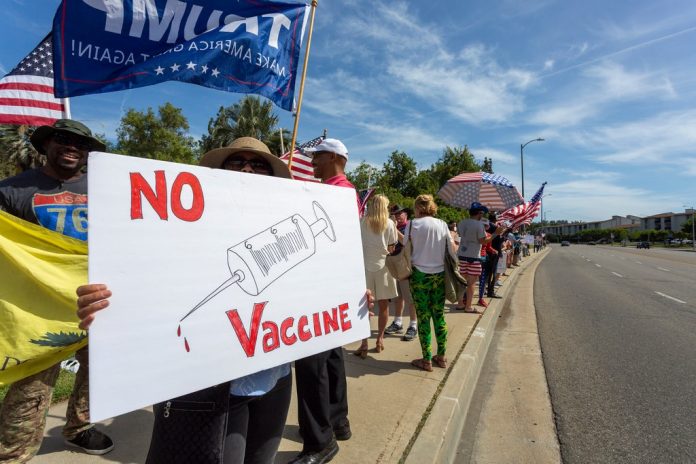My fellow Somali-Americans are being taken in by anti-vaccine disinformation.
Around the beginning of the pandemic, I started receiving WhatsApp messages from fellow Somalis instructing me to drink warm water, eat garlic and apply black seed oil every day to prevent Covid-19.
These are homeopathy remedies familiar to most Somalis. So while the claims were untrue and could provide a false sense of invincibility to those who followed them, they were otherwise benign and I was not alarmed.
I told my mother that these claims have no scientific basis. I admonished my 21-year-old cousin, a medical student in the autonomous region of Somaliland, to stop using this message as his WhatsApp profile picture.
The broader impact of claims like this soon became clear. My Somali friends and family, here and abroad, had stocked up on garlic, reported drinking more water and procured black seed oil. There were even reports of shortages of garlic in Somali markets. People who said these potions had suppressed their Covid-19 symptoms widely shared their views on social media.
But I became more alarmed late last month when I began receiving dubious advice about treating people seriously ill with Covid-19. These assertions came from a North Carolina osteopath who questioned whether the coronavirus even had anything to do with the disease that was sending people to intensive care units. The claims he made — like if you had the “flu shot, you will test positive for Covid-19” — would fail the slightest expert review. Nonetheless, he asserts his points with such passion, with an aura of claimed expertise, that his influence among Somalis was causing harm.
In early April, a nurse who is friend of mine, her father, mother, brother, sister, and nephew (14 months old) — all tested positive for the coronavirus. Her father was hospitalized for three days. Her mother was admitted to an intensive care unit and remained intubated for over five weeks.
Families going through a trying experience like this can find reasons to blame each other or feel guilt. Into such a reservoir of recrimination, poured the osteopath’s message, casting doubt on every decision the family made. After reading his claims, family members asked whether the mother needed to be hospitalized at all. If she did, they asked, did she need to be intubated and should she remain in the hospital. The onus of this inquest fell on my friend, because she is the one who made the decision to take her mother to the hospital.
On April 20, my friend texted me a 47-minute YouTube video from Dr. Buttar and inquired whether I “have seen this.” I examined what “this” was and sent back a pithy verdict: He was full of it. She responded with a polite, “LOL” and continued to ask, “You think so”? as if she wanted me to contribute to her growing sense of guilt. I would not. “Of course,” I wrote back, “both your mom and dad got sick. Was that made up”?
At the University of Rochester School of Medicine and Dentistry, where I recently graduated with dual degrees in medicine and translation biomedical science, we are taught that doctors need to consider a patient’s social, psychological, as well as biological, context. So I called my friend and I asked her to remember her training and to demand an apology from her sibling who blamed her for their mother’s ailment. (Family wounds now seem to be healing as the matriarch is out of the Covid-19 unit and seems to be improving.)
By
Dr. Hirad recently received an M.D. and Ph.D. in the Medical Scientist Training Program at the University of Rochester School of Medicine and Dentistry.
Source: The New York Times



























